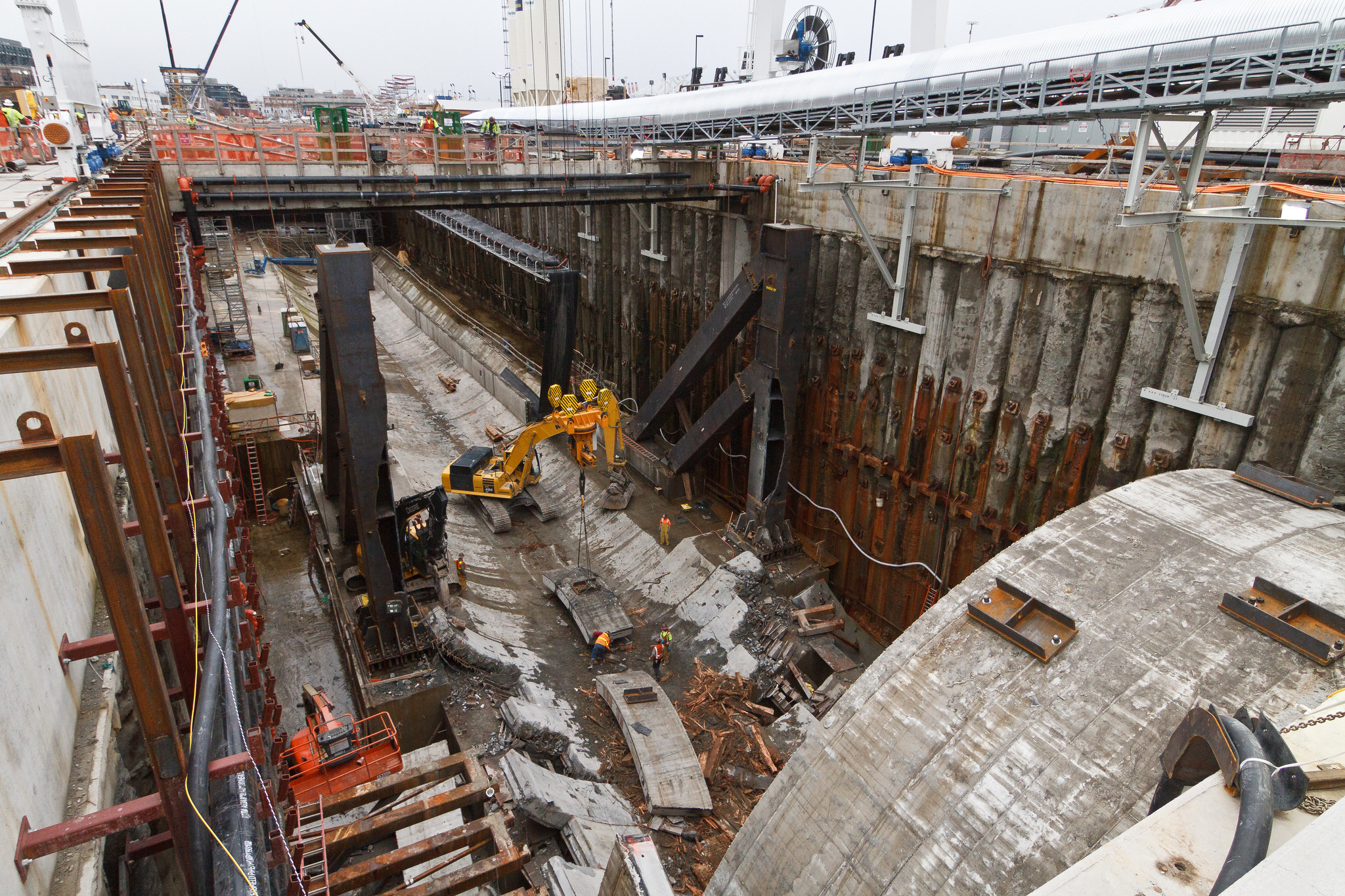In the first installment of this two-part series, we investigated what each of the major party platforms had to say about a crucial urban policy issue: housing. This time, we’re taking a look at another major concern for American cities: transportation. (It’s also definitely worthwhile to read what other people have written on the subject, including at The Transport Politic, Streetsblog, and the Washington Post.)
It is easy to sum up the space transportation takes up in the Democratic platform: not much. In fact, while housing only gets four paragraphs under its own heading in the 39-page document, “transportation” doesn’t have its own section at all. Rather, the handful of mentions mostly appear under “Infrastructure,” and include promises to:
…make the most ambitious investment in American infrastructure since President Eisenhower created the interstate highway system…put[ting] Americans to work updating and expanding our roads, bridges, public transit, airports, and passenger and freight rail lines.
And that’s about it.

Certainly American public transit could use more and better infrastructure in many places—but the failure to mention improving service funding at all shows a classic misunderstanding, or simple lack of care to understand, of what actually makes for valuable, and useful, public transportation. Moreover, without significant changes to, say, how we judge road performance, or orienting transportation dollars to improve accessibility rather than simply mobility, a massive new infrastructure public works program might make for a good jobs program, but expensive highway widening projects come at the cost of greater sprawl, decreased long-term accessibility, especially for the low-income, locking in more greenhouse gas emissions, and worsening the public health crisis of vehicle crashes.
The only other detail in the Democratic platform is an infrastructure bank, which we’ve written about before.
But if the Democratic platform skimps on substance, the substance of the Republican platform is more or less openly hostile to urban transportation. After praising a government program that changed the shape of Americans’ lives more than almost any other in the twentieth century—Eisenhower’s highway system—the platform goes on to condemn the “social engineering” of “an exclusively urban vision of dense housing and government transit.” (About 80 percent of the spending in the transportation bill President Obama signed last December goes to roads.) The platform condemns the use of Highway Trust Fund money for “bike-share programs, sidewalks, recreational trails, landscaping, and historical renovations,” and proposes phasing out entirely federal support for public transit.
Both of these platforms are deeply disappointing on urban transit. If it’s perhaps unsurprising that the Republican Party—which has been all but moribund in the vast majority of America’s urban neighborhoods, particularly in large cities, for decades—would be hostile to urban transportation, it’s more surprising that the Democrats—a large amount of whose base resides in cities like New York, Chicago, Los Angeles, and so on—would phone it in on this issue.
Platforms, of course, are not themselves legislation. But as we mentioned in writing about housing policy, evidence does suggest that policies that make it into official platforms have a better shot of making it into legislated policy in the future. Making real urban transportation reforms an acknowledged, specific part of a major party’s platform (at this juncture, almost certainly the Democrats’) isn’t a meaningless exercise. Nor is it something that ought only to appeal to people who read Planetizen, the Overhead Wire, CityLab (or City Observatory): improving car-free access to jobs, schools, and stores within urban areas is an essential part of a more just, environmentally sustainable, and prosperous America. It’s a shame for that conversation not to be happening at the most high-profile political conventions.
